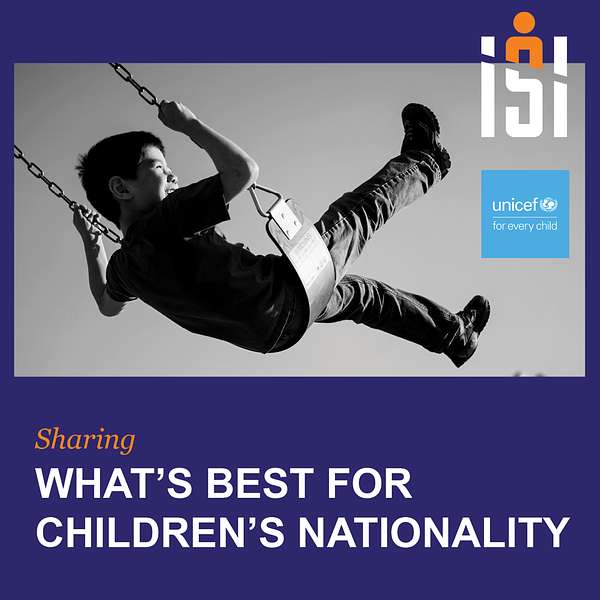
Institute on Statelessness and Inclusion Podcasts
ISI Podcasts help to unpack different dimensions to the issue of statelessness, and to explore challenges and opportunities in working to ensure the right to a nationality around the world.Article 15 of the Universal Declaration of Human Rights states that everyone has the right to a nationality and that no one shall be arbitrarily deprived of his nationality nor denied the right to change his nationality. Yet, there are more than 15 million people across the globe who face a life without a nationality; every ten minutes, another child is born stateless; and citizenship is increasingly wielded as a tool of exclusion. Without nationality, stateless people are vulnerable to discrimination and unequal treatment. They are denied access to education, healthcare, housing, employment, social welfare and documentation, as well as the right to own property, travel, be safe, free and equal, participate politically and have their voices heard. The Institute on Statelessness and Inclusion (ISI) is the first and the only human rights NGO dedicated to working on statelessness at the global level. Our mission is to promote inclusive societies by realising and protecting the right to a nationality. See www.institutesi.org for more details.
Institute on Statelessness and Inclusion Podcasts
What's Best for Children's Nationality Podcast
ISI has partnered with UNICEF to produce this six-part podcast series, ‘What’s Best for Children’s Nationality’, to build knowledge around childhood statelessness and the right of every child to a nationality by exploring good practices in the field with examples, challenges and successes from real-life settings.
A child without a nationality can struggle to obtain a birth certificate, access schooling, see a doctor and participate fully in society. To be stateless is to be an outsider, even in your own country, which can also have a severe impact on a child’s mental well-being and sense of self-worth. The Convention on the Rights of the Child (CRC) affirms the right of every child to a nationality precisely because it is a critical enabler for other child rights and integral element of a child’s identity. Yet it is a right that has historically received relatively little attention, as compared to other child rights, in part because the phenomenon of childhood statelessness is often invisible and/or poorly understood. This is now changing as the international community steps up its efforts to address statelessness globally, with a strong focus on children and this podcast series explores some of the lessons learned so far.